A poster to encourage parents and caregivers to take their baby for an HIV test.
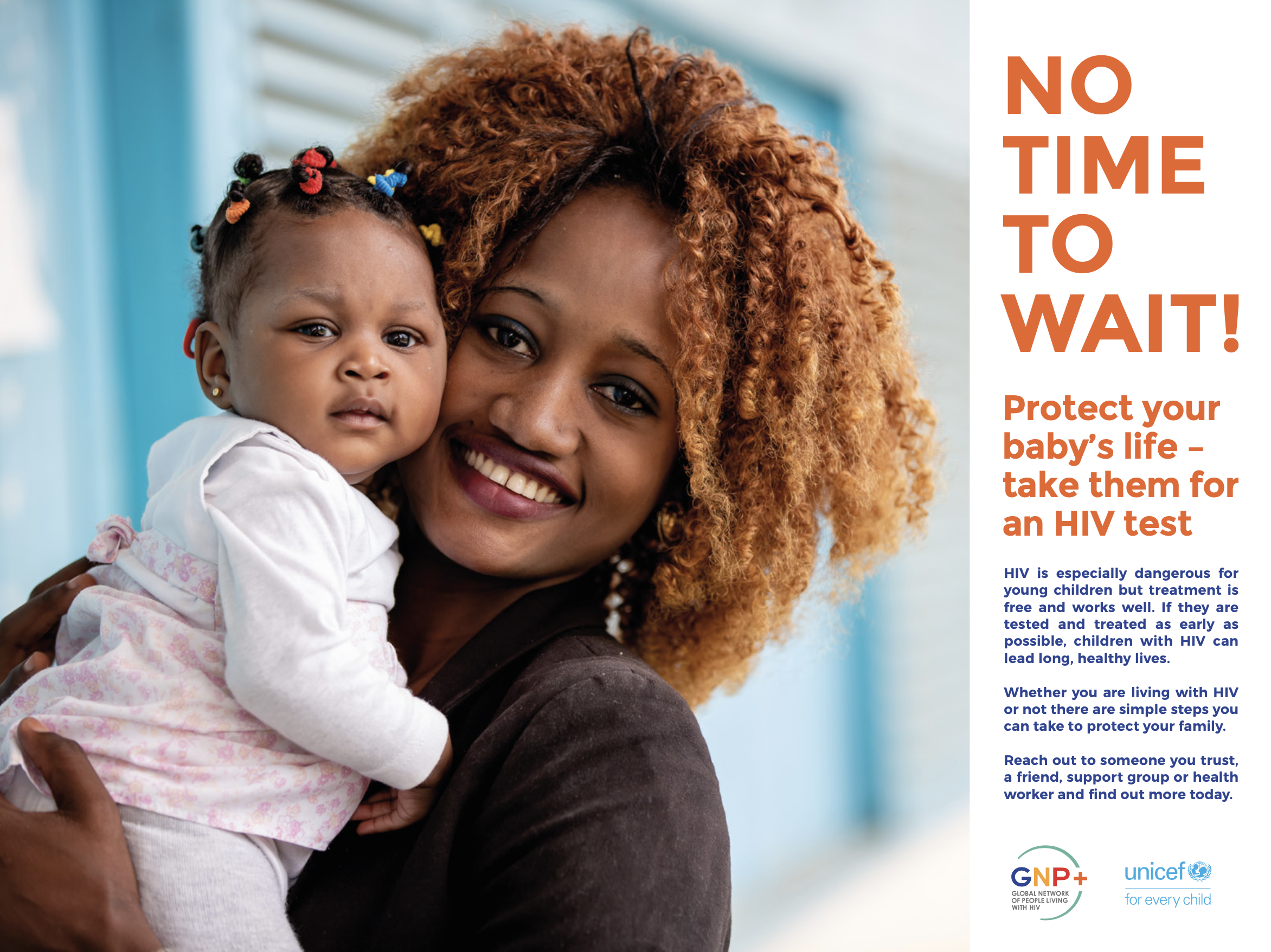

A poster to encourage parents and caregivers to take their baby for an HIV test.
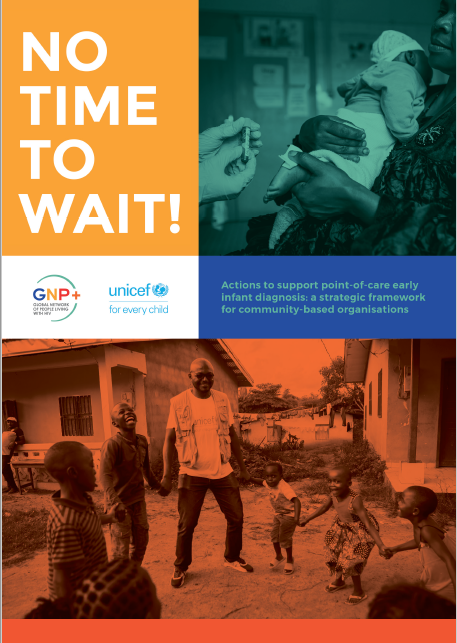
A strategic framework for networks of people living with HIV and other civil society organisations to help you develop an action plan to work in support of infant HIV testing.
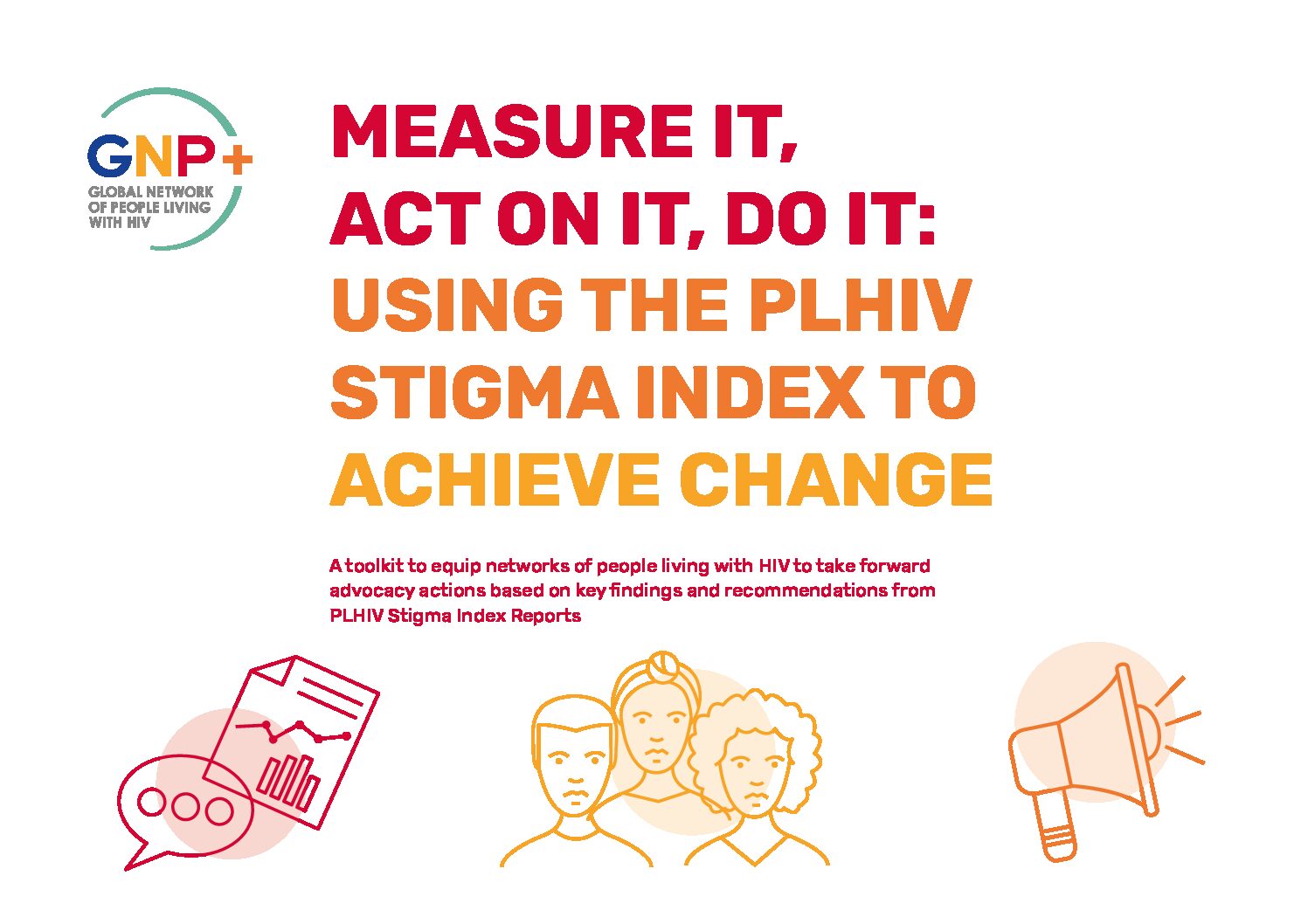
A toolkit to:
● Provide a set of practical tools that support community advocates to take concrete steps to turn the data and key findings of PLHIV Stigma Index Reports into practical advocacy actions
● Help networks of people living with HIV to identify and take forward advocacy actions based on the key findings and recommendations from PLHIV Stigma Index
Reports
● Support Stigma Index teams who are at the data analysis stage of the project or who are in the process of developing reports
● Build the capacity of advocates to use data on stigma to make a case for change
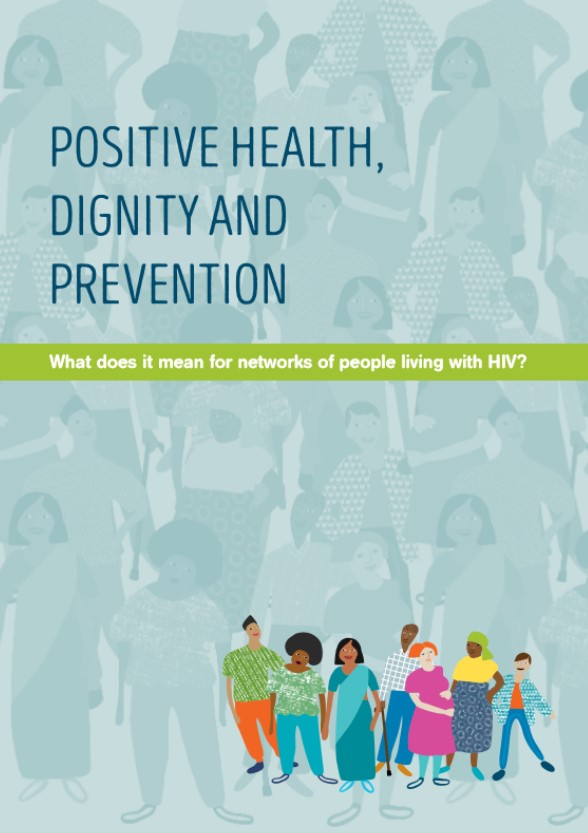
A series of materials that aims to improve the understanding of Positive Health, Dignity and Prevention. These booklets were written to support organisations to promote the meaningful engagement of people living with HIV in decisions that affect our lives.

Positive Health, Dignity and Prevention: What Does it Mean for Networks of People Living with HIV?
Positive Health, Dignity and Prevention: What Does It Mean for Me?
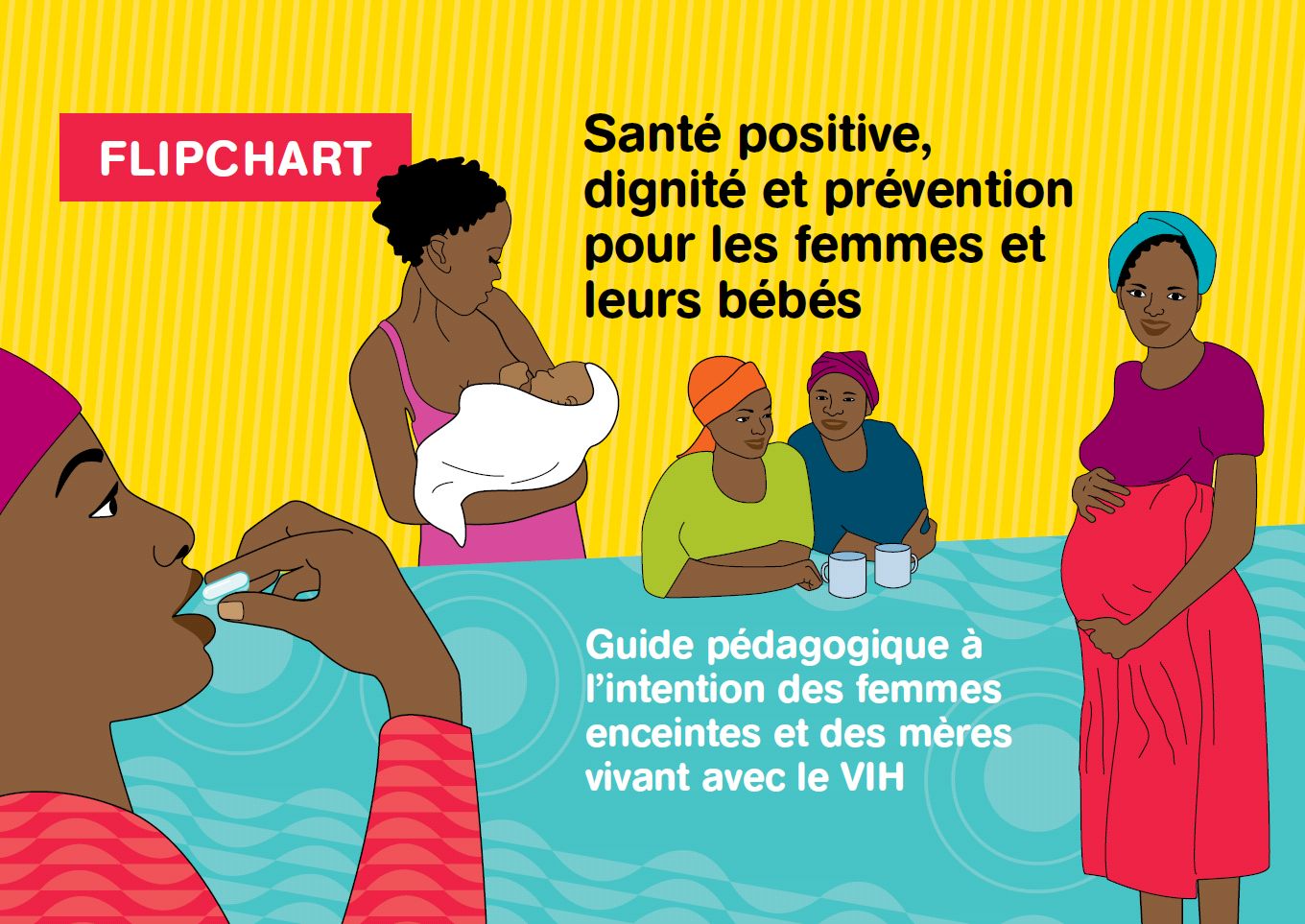
Women living with HIV from eight countries have shared their expertise to shape the content and design of the guide and it was formulated in direct response to a call from communities for up-to-date, evidence-based resources.
Positive Health, Dignity and Prevention for Women and their Babies: A treatment literacy guide for pregnant women and mothers living with HIV is intended for use by networks of women living with HIV, women’s groups, peer educators and others wishing to provide information and guidance to support women living with HIV through the decisions they will need to make before, during and after their pregnancy.
The guide has 12 modules covering issues ranging from human rights to treatment adherence and nutrition. It is made up of three separate tools:
The facilitator’s manual and flipchart are intended to be used together by leaders of support groups, peer educators or lay counselors to facilitate small groups or community sessions with women living with HIV. The poster can be displayed anywhere where it will be seen by women living with HIV and their families, such as: clinic rooms, church halls, waiting rooms and community education spaces.
This guide was developed by members of the Community Engagement Working Group (CEWG) of the Inter-Agency Task Team (IATT) for Prevention and Treatment of HIV Infection in Pregnant Women, Mother and Children, a group committed to strengthening global, regional and national partnerships and programs that address the survival of pregnant women, mothers and children living with HIV.
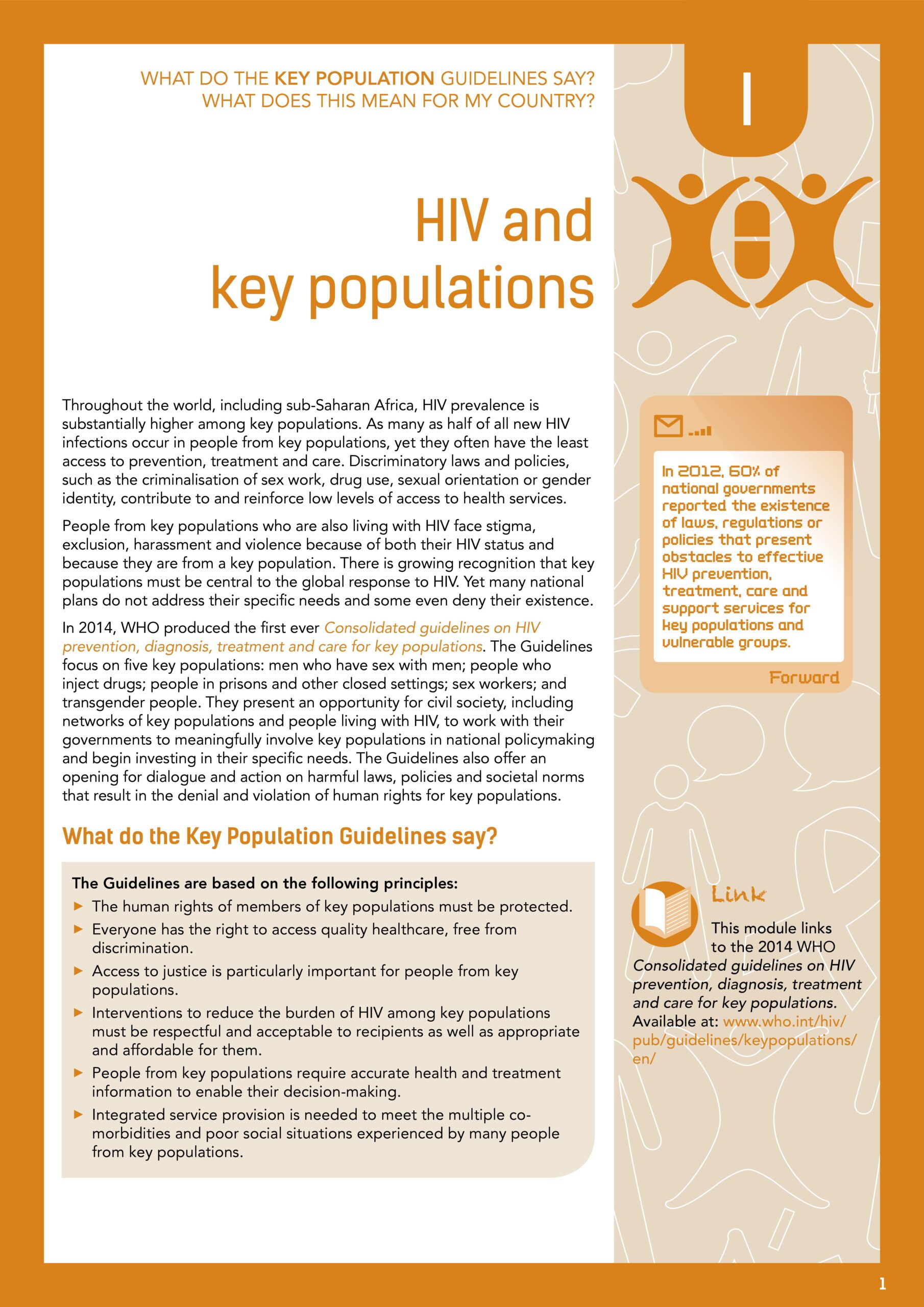
In 2014, WHO produced the first ever Consolidated guidelines on HIV prevention, diagnosis, treatment and care for key populations. The Guidelines focus on five key populations: men who have sex with men; people who inject drugs; people in prisons and other closed settings; sex workers; and transgender people.
They present an opportunity for civil society, including networks of key populations and people living with HIV, to work with their governments to meaningfully involve key populations in national policymaking and begin investing in their specific needs. The Guidelines also offer an opening for dialogue and action on harmful laws, policies and societal norms that result in the denial and violation of human rights for key populations.
To support community organisation with the implementation of and advocacy for the Guidelines we created a new module for Key Populations to our Community Guide.
This set of modules is designed to be used by communities to support the use of the new resource, Driving the HIV response: A community guide to the WHO 2013 Consolidated Guidelines on the Use of Antiretroviral Drugs for Treating and Preventing HIV Infection.
The downloadable modules cover different topics, and include:
The Global Network of People Living with HIV (GNP+), the International HIV/AIDS Alliance and STOP AIDS NOW! developed the Community Guide in response to the World Health Organization (WHO) 2013 Consolidated guidelines on the use of antiretroviral drugs for treating and preventing HIV. It aims to assist community leaders and civil society organisations to:
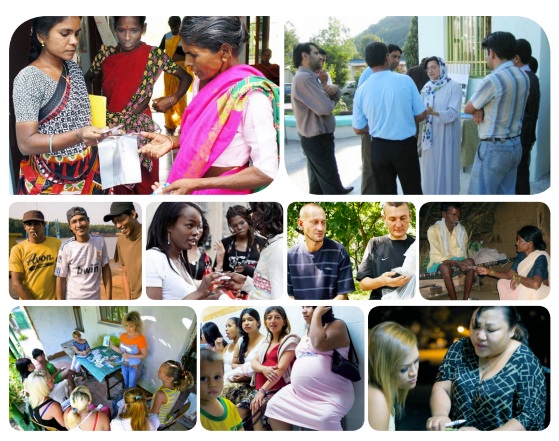
Ethical decision-making:
If you want to make the best possible decision—or wish that the organization that supports you would improve its decision-making—now there’s a simple tool that can help, available in English, French, Spanish and Russian.
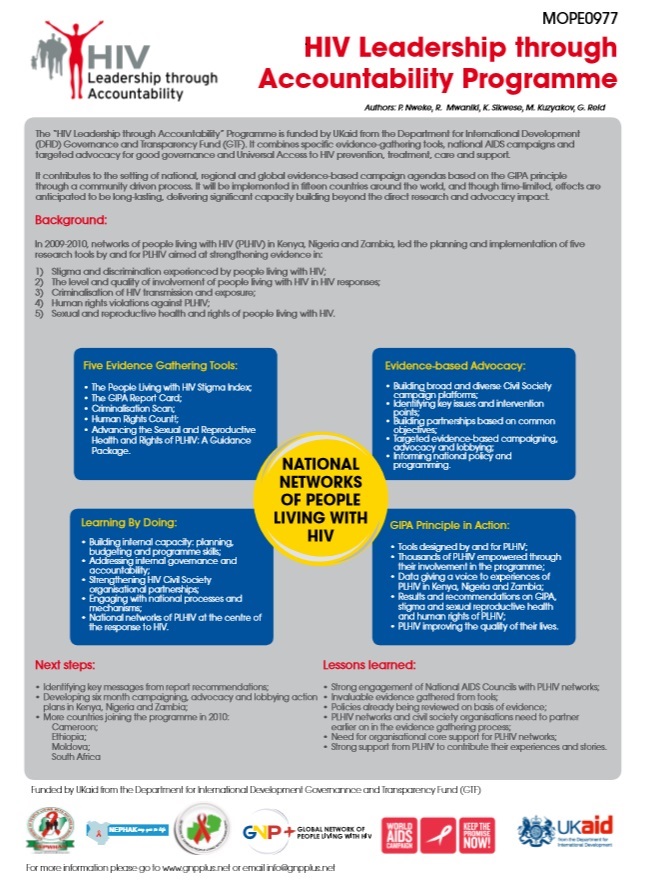
The “HIV Leadership through Accountability” Programme is funded by UKaid from the Department for International Development (DFID) Governance and Transparency Fund (GTF). It combines specific evidence-gathering tools, national AIDS campaigns and targeted advocacy for good governance and Universal Access to HIV prevention, treatment, care and support.
It contributes to the setting of national, regional and global evidence-based campaign agendas based on the GIPA principle through a community driven process. It will be implemented in fifteen countries around the world, and though time-limited, effects are anticipated to be long-lasting, delivering significant capacity building beyond the direct research and advocacy impact.

“Criminalisation of HIV” is a phrase that is used to refer to enacting of laws directed at punishing behaviour that may transmit HIV and the application of general laws in a manner that targets those with HIV who may transmit or expose another person to HIV.
The Global Criminalisation Scan (The Scan) is a programme that was developed to respond to this growing trend. The Scan was initiated and is led by the Global Network of people living with HIV (GNP+) in partnership with others to map and document the existence of laws, practices and policies that impact on responses to HIV. The scan was adapted in 2010 to include protective as well as punitive laws.
Positive laws and policies create the environment in which necessary services can be easily and equitably accessed. For this to happen, these laws need to be promoted and enforced. Examples of positive laws and practices include laws that protect people living with HIV from discrimination, particularly discrimination on the grounds of actual or perceived HIV positive status.
Available in English and French
For more information on criminalisation of HIV, visit the the GNP+ criminalisation scan website
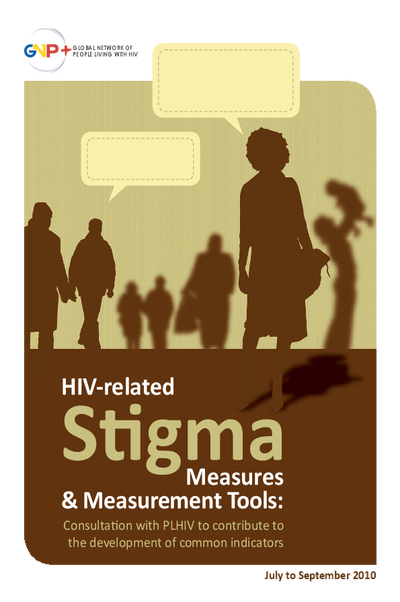
The Global Network of People living with HIV between July and September 2010 held a consultation with people living with HIV as part of a process to develop better indicators to measure HIV-related stigma. The consultation aimed to determine priorities for addressing stigma, to identify key indicators, and to enable measurement of progress in efforts to reduce stigma.
One of the main conclusions was that the development of these indicators should concentrate on the perception of stigma experienced by people living with HIV as a measurement of stigma toward people living with HIV. This in contrast with indicators generated through consultations with the general population, which were viewed as a weak proxy for consulting with people living with HIV themselves.
During the consultation over 500 replies were received to an online questionnaire in four languages – English, French, Spanish and Russian. In addition, in-depth semi structured interview were conducted with a sample of 19 people living with HIV. GNP+ would like to express its gratitude to all those people living with HIV that took part.
This consultation was funded by the United Nations Joint Programme on HIV/AIDS (UNAIDS).
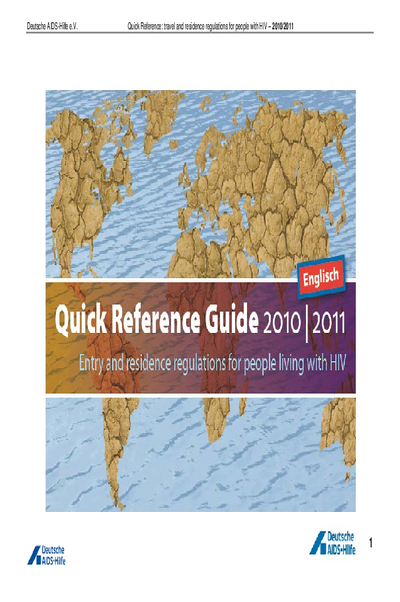
GNP+ has engaged with different partners on HIV related entry, stay and residence restrictions. GNP+ engaged with the Civil Society Travel Restrictions Task Team, the travel and mobility group through the UNAIDS PCB, as well as the Global Fund, PEPFAR and others. Since 2008, GNP+ has been contributing to the Quick Reference Guide set up by Deutsche AIDS Hilfe.
Available in English, French, German, Italian, Spanish and Slovak
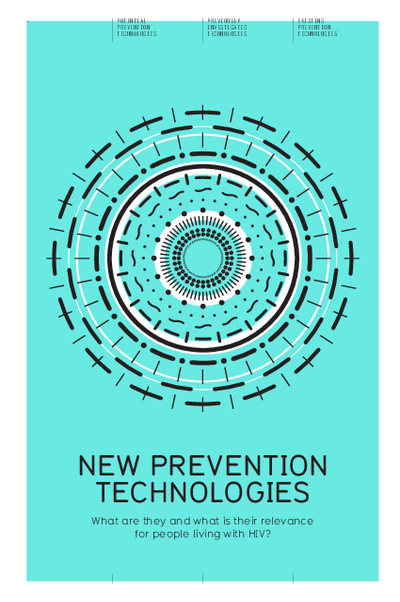
To ensure a comprehensive approach to addressing HIV, the international community has been calling for sustained investments and increased efforts towards universal access to prevention, care, treatment and support. This includes significantly improving access to existing proven means of preventing HIV transmission. At the same time, the world needs new prevention tools and technologies that will work with and complement existing prevention methods.
There are a number of global efforts underway to develop new technologies to prevent HIV. Currently, there is research being conducted on vaginal and rectal microbicides, vaccines, pre-exposure prophylaxis (PrEP) and the use of HIV treatment as prevention. Research into NPTs is a lengthy process that takes 12 years or more to go from laboratory and animal testing, to safety and efficacy studies, and through regulatory approval and post-marketing studies.
This toolkit provides a brief definition of each of the potential prevention tools being researched, gives an overview of the current state of research, and discusses their relevance for people living with HIV.
It then outlines research into prevention technologies that have had unsuccessful results—diaphragms and cervical barriers, and treatment for herpes simplex virus type 2 (HSV-2). Finally, the toolkit provides an overview of the prevention technologies that we currently have at our disposal—female and male condoms, medical male circumcision, post-exposure prophylaxis and prevention of vertical transmission (sometimes called prevention of mother-to-child transmission or PMTCT)—and summarises recent findings about these technologies.
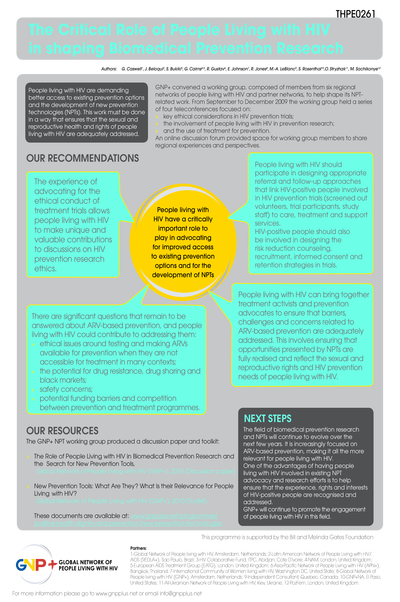
GNP+ presented 14 posters during the 2010 International AIDS Conference in Vienna, AIDS2010. This poster focused on the work of the New Prevention Technology expert group, and their findings with regards to the role of people living with HIV in these trials.
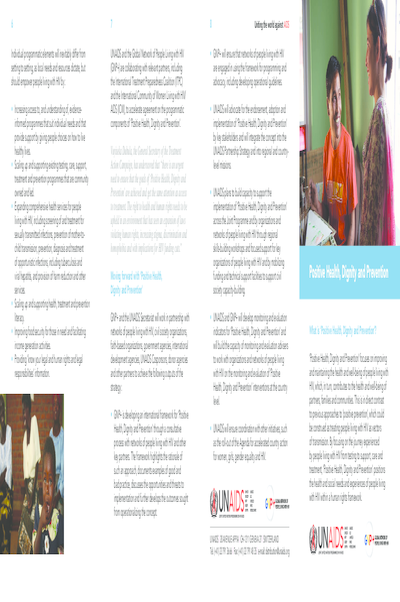
‘Positive Health, Dignity and Prevention’ focuses on improving and maintaining the health and well-being of people living with HIV, which, in turn, contributes to the health and well-being of partners, families and communities. This brochure summarizes the concept of Positive Health, Dignity and Prevention.

This advocacy agenda is a tool for people living with HIV to advocate with other stakeholders in NPTs. It features six key points and is the outcome of the presentations and discussions at the consultation, as well as the working group’s recommendations. It is envisaged that this agenda is a work in progress that will evolve in response to the results of NPT clinical trials currently in progress as well as broader developments in HIV policy as it relates to HIV prevention and people living with HIV.
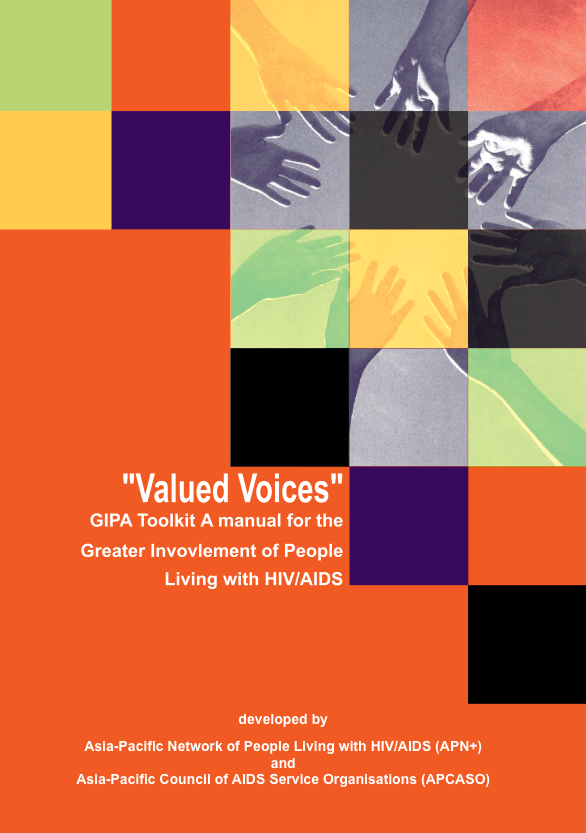
GIPA is not a concept that is difficult to grasp, yet often organisations don’t seem to be willing to make the commitment to acknowledge that involving those at the core of the epidemic simply makes good sense, and brings credibility and reality to projects, activities and the organisation as a whole.
The Asia-Pacific Network of People Living with HIV/AIDS (APN+) and the Asia-Pacific Council of AIDS Service Organisations (APCASO) in association with the Seven Sisters Coalition, made this GIPA toolkit.
By fully utilising this GIPA toolkit it will help promote the rights and needs of people living with HIV/AIDS to ensure that their voice is heard. Empowered PLWHA should play a significant part in the response be it in lobbying governments, information, education and communication, community mobilisation or service provision, prevention, treatment care and support.